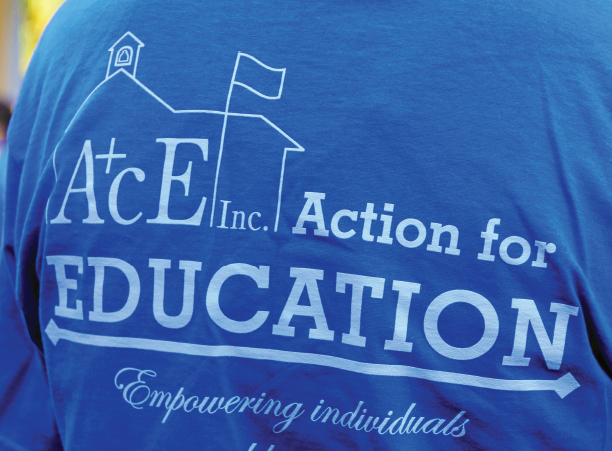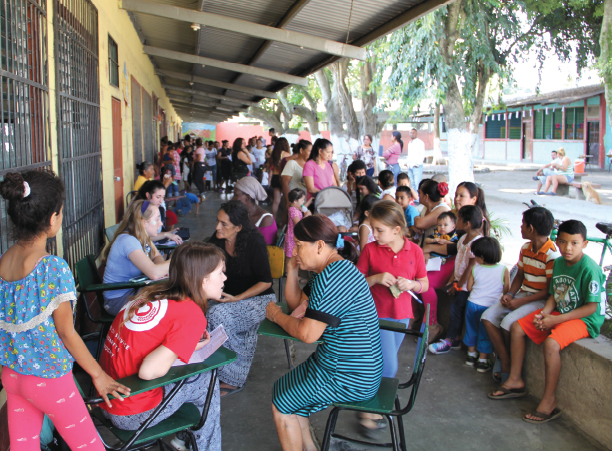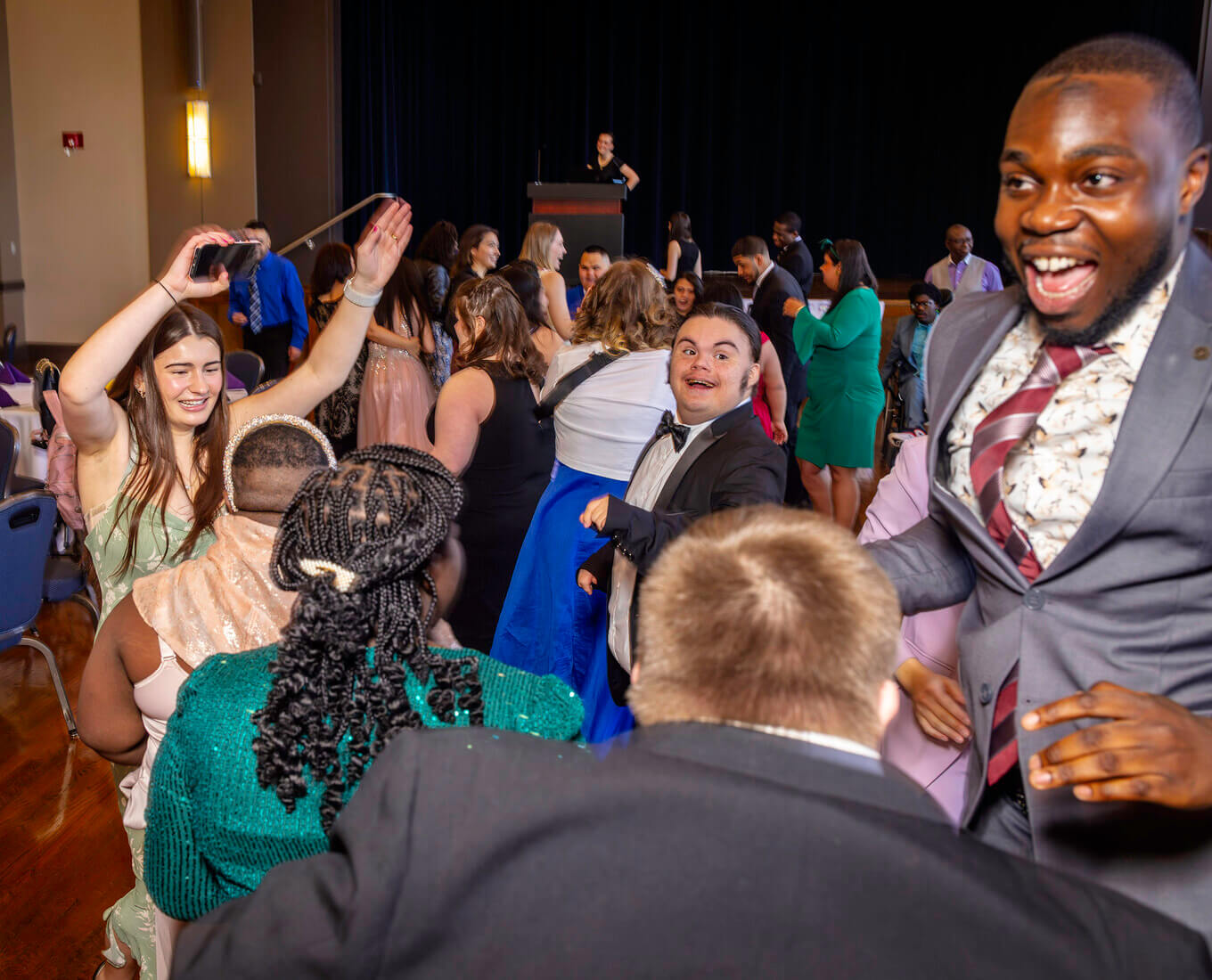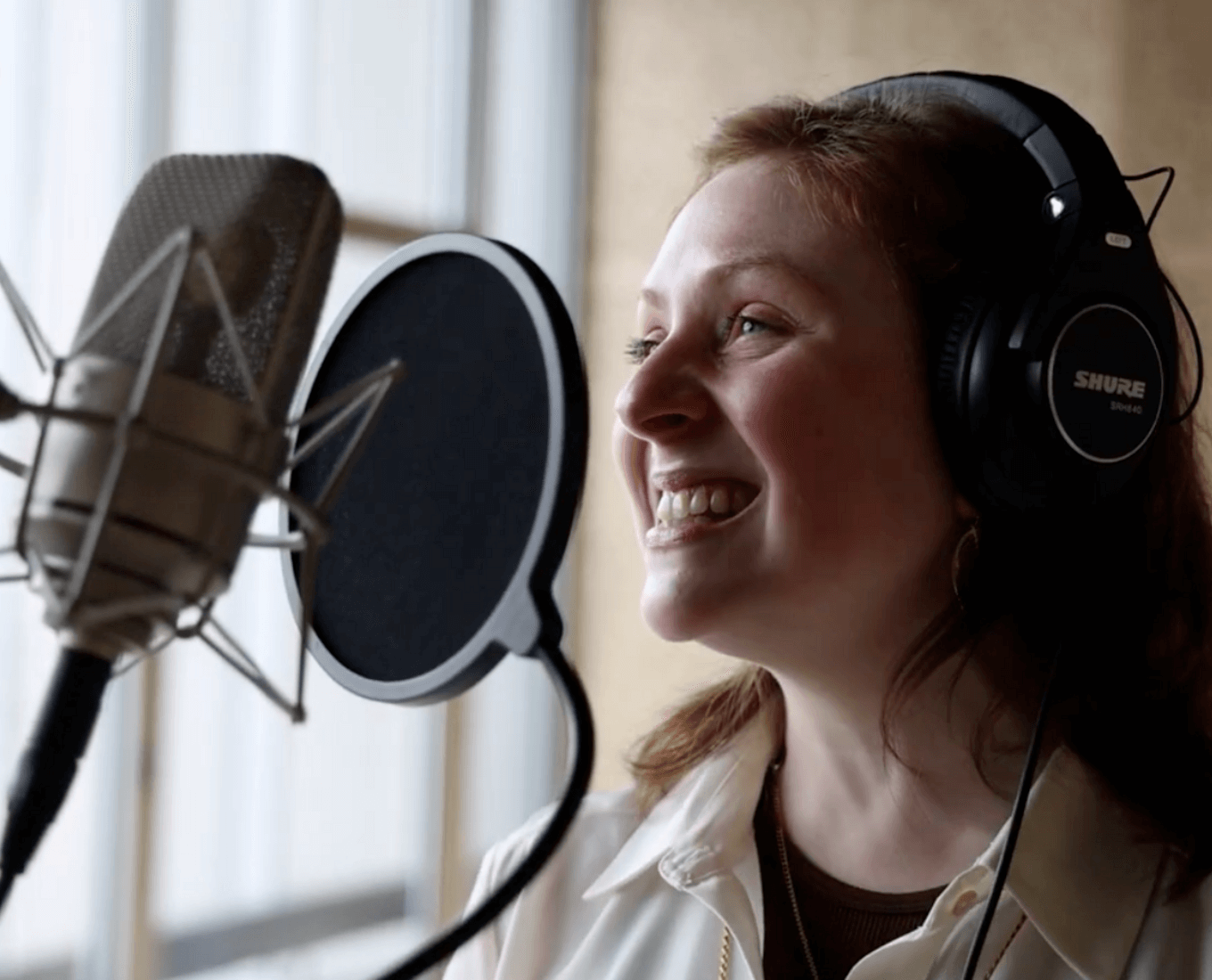It was 2014 when Michael Mastroianni "16 found himself in Honduras on a missionary trip — and on the verge of losing a bet that would change his life and those of local residents.
In the country on a Medical Ministry International (MMI) trip, Mastroianni bet local MMI Director Jorge Encalada a Coke that he could best him at foosball. Encalada later collected his prize and, over that soda, told Mastroianni about his dream of building a public school in San Pedro Sula, which in 2013 earned the dubious distinction as the world's most violent city. The second-largest city in Honduras, its murder rate was reportedly the highest in the world outside a war zone.
Encalada explained that an education would keep local children from falling prey to the gangs, which have a stranglehold on the poor country. While Honduras offers free public school through fifth grade, Encalada says there are not enough schools to educate those interested, and parents in the area can't afford private education. His initial plan to rent space faced numerous obstacles from the government, severely hindering his progress. With $10,000, Encalada said he could break ground on a school the community would help construct.
"I heard how genuine Jorge was about [the school]. Families there only make about $1.50 a day, on average, from work. They have no incentive to go to school. I felt like I needed to do something," Mastroianni says.
Then heading into his junior year at Holy Cross, Mastroianni promised Encalada he would fundraise the $10,000, and, together, they would open the school, which would take students from kindergarten through ninth grade, giving them an immediate advantage. "I wasn't making money yet myself, but these kids couldn't wait a decade for me to become a doctor," he says.
Honduras— especially the mission trip — had given Mastroianni so much, including a re-commitment to pursue the medical career he had wavered on after the death of a close friend, that he wanted to give back in a meaningful way. He was sure that doing even more for those in need, in the form of fundraising for a future school, was the very embodiment of the Jesuit mission he had internalized during his years on Mount St. James.
The Holy Cross community agreed and helped Mastroianni reach his goal. After making a fundraising appeal to his personal network via social media, Mastroianni began receiving donations from students, alumni, faculty and the administration.
"[Everyone who helped us] saw we were doing our part to make the world a better place," Mastroianni says.
"When Mike told us about Jorge's idea for the public school, we knew there was something there," says Michael Ciaramella '17.
Less than a year later, on Feb. 1, 2015, the Juan Orlando Hernandez (JOH) School, named for Honduras' president, opened the doors to its first class of students. Now in its fourth year of classes, the school currently has 375 students enrolled in grades K-9. Its tuition-free model encourages families to continue to send their children to school, knowing they will be able to at least complete their primary education with the opportunity for more. The school boasts a more than 98 percent graduation rate, an almost unheard-of statistic for Honduran public schools. And its success has led to more support from the government, which now pays half of the teacher salaries.
Encalada calls the school's impact on its students "unbelievable."
"We did not have a school in our community, and there was no opportunity for the kids to go to school; there was no opportunity for education," he says. "Many parents want to send their kids to our school because we are free and because we have great teachers who are happy to be a part of this. We want to expand our schools to accept more students, but we want to do it slowly, and only when we know for sure we can handle more and still give a quality education."
Enjoying the success of the public school's first few months, Mastroianni decided to create a registered nonprofit, Action for Education (AcE), dedicated to overseeing and continuing to fundraise for the school. He also drafted two close friends, Ciaramella and Carl Perry III '16, as co-founders.
"It was very difficult in the early days because we were [mostly] college students trying to figure out how to run a nonprofit, all the while knowing the public school and its community depended entirely on us to support it," Mastroianni says.
Balancing a full course load while supporting a school 3,500 miles away was challenging for the founders, resulting in careful time management. "Instead of doing something essentially meaningless during my free time, I would work on developing AcE," Mastroianni says. "It was addicting! I really became consumed with it, and it's all I wanted to work on. But at the same time, we still had to do our class work, so when one of us was really busy, we would let each other know, and the others would pick up the slack. It was a team effort driven by each one of us."
A New Opportunity
Ciaramella, Perry and Mastroianni were continuing their studies, as well as their goals of growing the nascent nonprofit, when AcE encountered an unexpected opportunity in early 2016.
Lauren McCormick '17, then AcE secretary, was looking forward to a medical mission trip to Honduras with MMI. One to two weeks long, the trips enabled students to work alongside Honduran and American doctors in pop-up clinics across the country, where they saw patients for myriad conditions, including chronic diseases such as diabetes and hypertension. "We could learn how to take medical histories, test blood sugars, etc.," she says.
But before students could pack their bags, the trip was cancelled. After trying to find another group to organize and host, Mastroianni and the AcE board decided to sponsor the trip themselves. Encalada, already president of the JOH School, was hired by AcE to handle the Honduras side of the planning, while Mastroianni worked on stateside details, including liability, ordering medications for the clinic and purchasing insurance for volu
1nteers. They launched the first AcE-sponsored medical service trip in summer 2016 and have now fielded six to the region, treating more than 11,000 patients and filling over 28,500 prescriptions at free clinics.
 Kathryn Spitler '18, former AcE RSO cochair, takes a patient's blood pressure at a summer 2017 clinic in Morazán. Photo courtesy of Action for Education
Kathryn Spitler '18, former AcE RSO cochair, takes a patient's blood pressure at a summer 2017 clinic in Morazán. Photo courtesy of Action for Education"We travel every day to different locations to reach the patients instead of making them come to us," he notes, explaining that otherwise many would have to walk hours — over mountains — to seek care.
On-Campus Impact
In 2017, AcE was designated as a Recognized Student Organization by Holy Cross, advised by Professor Leila Philip of the English department, who had been helping students such as McCormick write about their experiences in Honduras. Ciaramella, AcE's co-chief operating officer, says RSO status on campus is important because "it allows us to bring more students [to Honduras] to have that experience, to get to know another culture and to understand the challenges they are facing."
Brian Carvalho '20, co-chair of the Holy Cross AcE chapter, has made two AcE medical mission trips and says the RSO offers students the chance to experience firsthand the high-impact service work that directly benefits hundreds of Hondurans. Participants also learn how to fundraise, how public/global health works in developing countries, how a language barrier affects patient experience and how to advocate for disadvantaged communities.
"If students are interested in health care, public/global health, service or community development, AcE gives them a great opportunity to explore these and several more key medical challenges," he says.
The RSO fundraises for several AcE projects, including raising money for a scholarship program for Honduran students. Members also collect materials for the organization's medical service trips, such as eyeglasses and toothbrushes, and act as an information source for individuals interested in medical mission trips.
Growing, Growing, Growing
 Lauren McCormick '17 and Mary Harris '18 work with patients at the triage station in a March 2018 clinic in San Manuel. Photo courtesy of Action for Education
Lauren McCormick '17 and Mary Harris '18 work with patients at the triage station in a March 2018 clinic in San Manuel. Photo courtesy of Action for EducationThe Trinidad School of Nursing (TSN) began offering classes in February 2018 as a way of reducing residents' long-term dependence on foreign mission trip workers for health care. AcE leaders saw the nursing school as an opportunity to make the country healthier by producing local nurses trained to meet the region's day-to-day needs.
TSN's first 36 students are now eight months into their studies, and upon graduation in 2020, will go to work in their communities. Philip says the nonprofit's ever-expanding mission is a tribute to what students learn at Holy Cross.
"They're not just checking off a box on their resume," she says. "They have tremendous dedication." She applauds Mastroianni for starting AcE to give other students the opportunity to connect what they are doing at Holy Cross with the outside world. "When one young person shows that you can do it, it inspires others," she says.
McCormick, now AcE director of student relations and event coordination, says she's still stunned at the fast and immediate impact they have had. "When you're our age, it feels like there's not a lot you can do," she notes.
McCormick, Ciaramella and Mastroianni, all currently in medical school, plan to create AcE chapters at their respective institutions. McCormick hopes to launch one that will raise money to establish year-round clinics across the country and open more schools.
And Mastroianni still has big plans for the nonprofit. He and AcE colleagues have just begun a long-term medical research project with local residents, and soon "I'd like to create a tuition-free medical school there and produce doctors," he says. "The beautiful part of our organization is we are all so young and we are pursuing a variety of careers that can make such a serious influence on what we're trying to do. We will never stray from our vision. Our organization will always be 100 percent volunteer, so the money we raise can have the most impact," Mastroianni says.
Written by Sandra Gittlen for the Fall 2018 issue of Holy Cross Magazine.
About Holy Cross Magazine
Holy Cross Magazine (HCM) is the quarterly alumni publication of the College of the Holy Cross. The award-winning publication is mailed to alumni and friends of the College and includes intriguing profiles, make-you-think features, alumni news, exclusive photos and more. Visit magazine.holycross.edu/about to contact HCM, submit alumni class notes, milestones, or letters to the editor.


